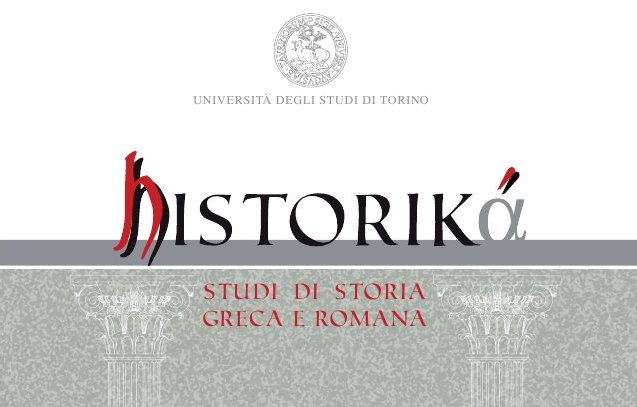Désigner chez les orateurs attiques les discours des ambassadeurs « ratés »: vocabulaire et figures
DOI:
https://doi.org/10.13135/2039-4985/5679Abstract
Abstract in English:
In this paper, I examine the vocabulary which the Attic orators use in order to present the speeches of the ambassadors who are criticized for obstructing the truth and the interests of an embassy or a state. With few exceptions, there is a lack of firsthand written records of those who took part in the legations. In order to determine whether they really deserve the criticism, it is necessary to take into consideration several factors that intervene in the use of this particular vocabulary: the historical context and the interests at stake during an embassy, as well as the point of view of those who criticize them. It turns out that their criticism does not necessarily mean that the ambassadors did not fulfill the mission entrusted to them. On the contrary, the political conditions and the perspective adopted by the Attic orators interact with each other and allow to paint a negative portrait of the ambassadors that serve specific rhetorical or political goals.
Résumé en français:
La présente étude examine le vocabulaire qu’utilisent les orateurs attiques pour présenter les paroles des ambassadeurs qui ne sont pas considérées comme conformes à la vérité et aux intérêts d’une ambassade ou d’un État. À quelques exceptions près, leurs discours ne nous sont pas directement transmis et, pour pouvoir déterminer si les ambassadeurs méritent réellement les qualificatifs qu’on leur attribue, il faut examiner les différents facteurs qui interviennent dans l’usage du vocabulaire en question : les circonstances historiques, les enjeux de l’ambassade, le parti pris de ceux qui critiquent leur action. Il s’avère que le portrait péjoratif qui en découle ne signifie pas nécessairement que les ambassadeurs n’ont pas rempli la mission qui leur a été confiée, mais que les conditions politiques et la perspective adoptée par les orateurs interagissent entre elles, en permettant d’esquisser une image négative propre à leurs buts rhétoriques ou politiques.
Downloads
Published
Issue
Section
License
The authors who publish in this magazine accept the following conditions:
a) The authors retain the rights to their work and assign the right of first publication of the work to the magazine, simultaneously licensed under a Creative Commons License - Attribution that allows others to share the work indicating intellectual authorship and the first publication in this magazine.
b) Authors may adhere to other non-exclusive license agreements for the distribution of the version of the published work (e.g. deposit it in an institutional archive or publish it in a monograph), provided that the first publication has taken place in this magazine.


 The journal has been approved for inclusion in DOAJ. The DOAJ listing of the journal is available at
The journal has been approved for inclusion in DOAJ. The DOAJ listing of the journal is available at 

